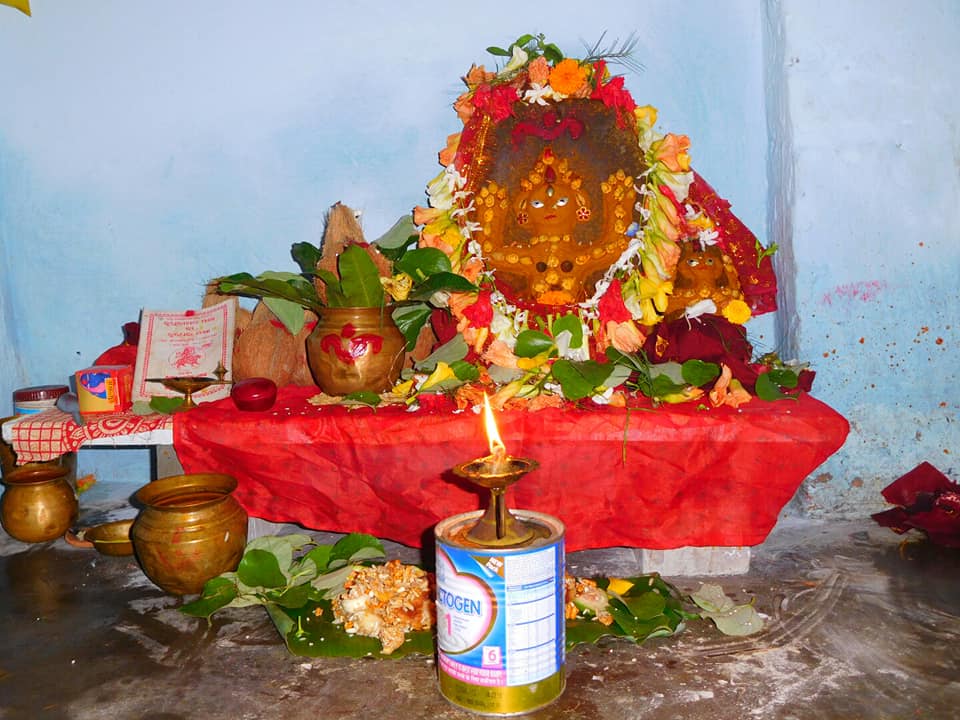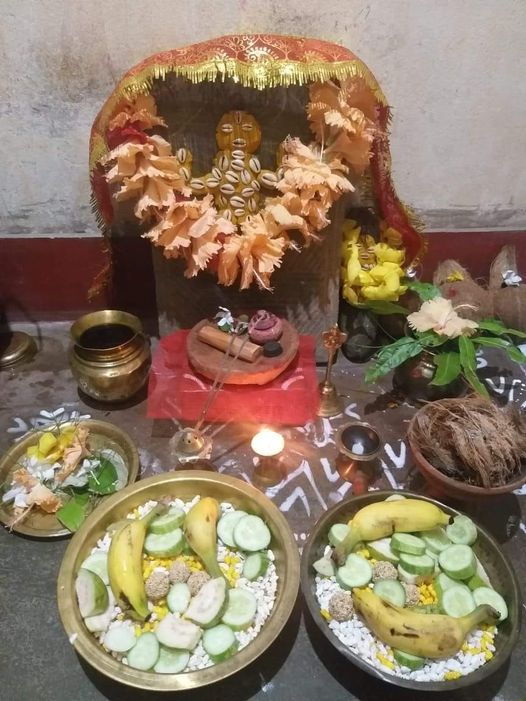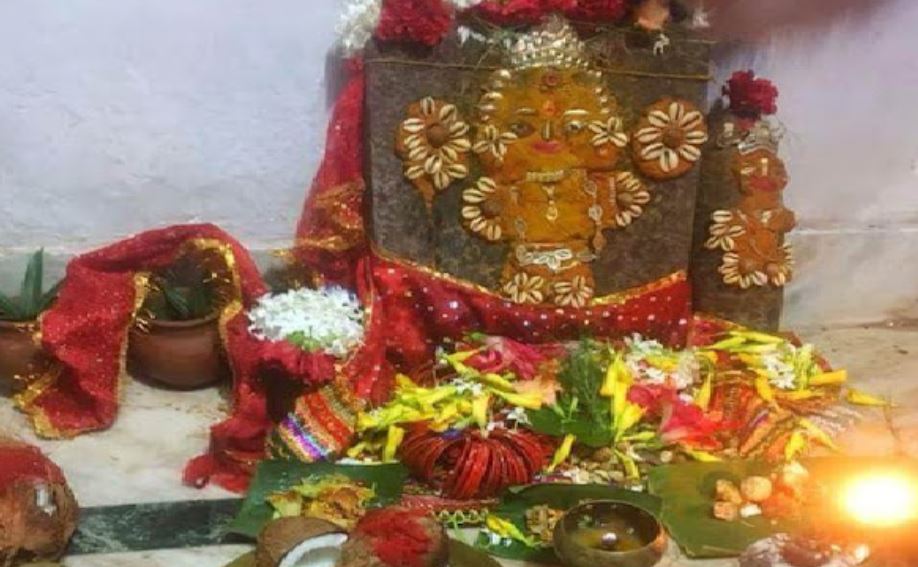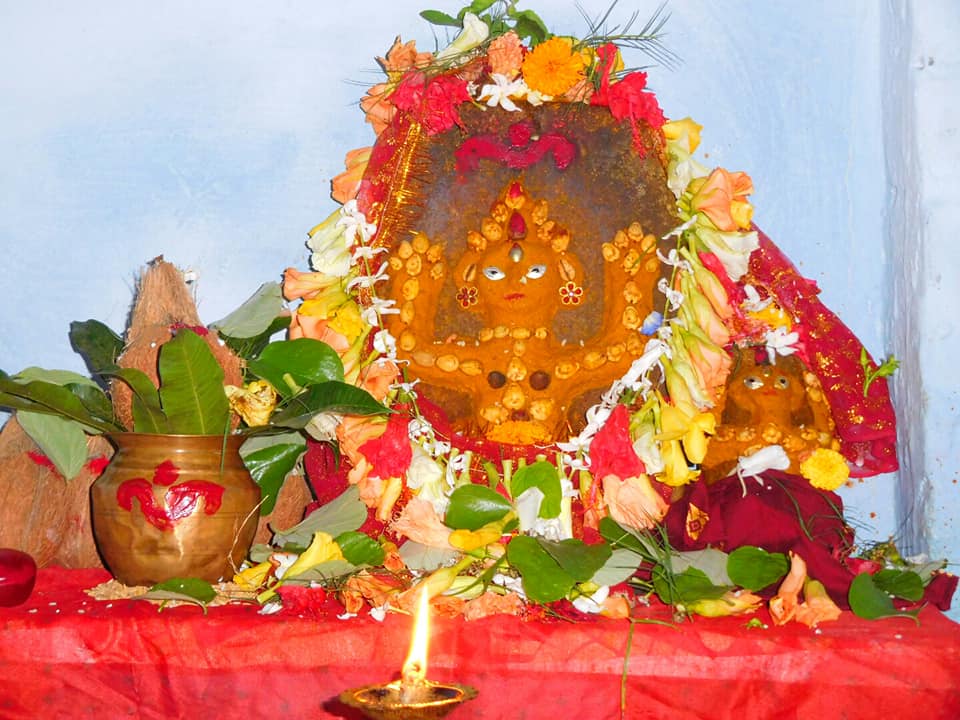Budei Osha, also known as Buda Purnima or Bada Osha, is a sacred festival celebrated with deep reverence and devotion in the state of Odisha. This auspicious occasion holds immense significance as it honors ancestral spirits and seeks their blessings for the well-being and prosperity of the family. The festival showcases the rich cultural heritage and spiritual beliefs that are integral to Odia society.
Budei Osha is observed on the full moon day (Purnima) in the Hindu month of Kartik, which usually falls between October and November. Devotees believe that by participating in this ritual, they can pay homage to their ancestors and seek their guidance and blessings for happiness and fulfillment in life.

The festivities of Budei Osha begin early in the morning as devotees prepare themselves for the sacred rituals ahead. They clean their homes, dress in traditional attire, and create a serene ambiance within their households by lighting incense and lamps.
Central to Budei Osha is the offering of special puja (worship) to the ancestors. Devotees set up an altar adorned with flowers, fruits, betel leaves, and other sacred items. They also place photographs or symbolic representations of their departed ancestors on the altar as a mark of remembrance and reverence.
Devotees then light incense sticks and offer prayers, expressing their love, gratitude, and respect for their ancestors. They recite mantras (sacred chants) and perform elaborate rituals, seeking the blessings and protection of the ancestral spirits. The puja creates a spiritual connection between the present and past generations, fostering a sense of continuity and familial bond.
You can read our another post on World Nature Conservation Day

More: Wanted to download Odishashop.com visit here
As part of Budei Osha, devotees observe a strict day-long fast, abstaining from consuming any food or water until the completion of the evening rituals. The fast is believed to purify the body and mind and create an atmosphere of devotion and spiritual focus.
In the evening, after the completion of the puja, devotees break their fast by partaking in a simple vegetarian meal. The meal includes traditional Odia delicacies like rice, dal (lentils), vegetable curries, and sweet dishes. It is considered sacred and blessed by the ancestral spirits, fostering a sense of communion and gratitude.
Budei Osha also serves as an occasion for families to come together and share stories about their ancestors. They reminisce about their loved ones, recount their achievements, and pass down family traditions and values to younger generations. This strengthens the bond among family members and reinforces the importance of honoring and remembering one’s roots.
The festival of Budei Osha continues to be celebrated with deep devotion and cultural reverence, reaffirming the spiritual beliefs and values associated with ancestral blessings. It encourages individuals to appreciate their lineage, seek guidance from their ancestors, and carry forward the virtues and wisdom passed down through generations.

What is “budei Osha”?
“Budei Osha” is a traditional African spiritual practice that traces its roots to the Yoruba people of present-day Nigeria. It incorporates religious beliefs, rituals, and ceremonies to connect practitioners with their ancestors and deities.
What does “budei Osha” mean?
“Budei Osha” translates to “the way of Osha,” with “Osha” referring to the deities or Orishas worshipped in this spiritual practice.
Can anyone practice “budei Osha”?
“Budei Osha” is generally practiced within the African diaspora, primarily by descendants of Yoruba people. However, it is not restricted to a specific ethnic group or race, and anyone with a sincere interest and willingness to learn can engage in this practice.
What deities are worshipped in “budei Osha”?
The deities worshipped in “budei Osha” vary, but common Orishas include Oshun (goddess of love and fertility), Yemaya (goddess of the sea), and Obatala (wise and calm creator deity). There are over 400 known Orishas, each representing different aspects of life and nature.
What are some common rituals in “budei Osha”?
Common rituals in “budei Osha” include divination ceremonies, where practitioners consult with Orishas for guidance, initiations to become a priest or priestess, and offering sacrifices to honor the Orishas and ancestors.
How can one become initiated into “budei Osha”?
To become initiated into “budei Osha,” one must first find a qualified elder or priest/priestess who can guide them through the process. The initiation involves undergoing specific rituals, which vary depending on the Orisha being worshipped.
Does “budei Osha” have any restrictions or rules?
Yes, “budei Osha” has specific rules and guidelines that practitioners must follow. These rules include dietary restrictions, such as abstaining from certain foods or substances, as well as adhering to moral codes of conduct and respect for elders and deities.
Can “budei Osha” be practiced alongside other religions?
“Budei Osha” is a standalone spiritual practice, and while some practitioners may incorporate elements of their other beliefs, it generally does not syncretize with other religions. Each Orisha has its own distinct worship practices and rituals.
Are there any benefits to practicing “budei Osha”?
Practicing “budei Osha” is believed to bring numerous benefits, including spiritual growth, protection, guidance, healing, and connection to one’s ancestry. It can provide a sense of community and serve as a channel for personal and cultural identity.
How can one learn more about “budei Osha”?
To learn more about “budei Osha,” it is best to seek out reputable sources, books, or local practitioners who can provide accurate information and guidance. It is important to approach this practice with respect, openness, and humility, as it holds deep cultural and spiritual significance.
Conclusion
In conclusion, Budei Osha is a cherished cultural event in Odisha that honors ancestral spirits and seeks their blessings for the well-being and prosperity of the family. The festival invites devotees to express their love and gratitude to their ancestors, fostering a sense of continuity and familial bond. It serves as a reminder of the enduring influence of our forebears and the importance of carrying forward their virtues and wisdom into the future.

